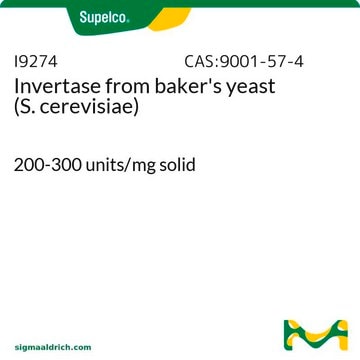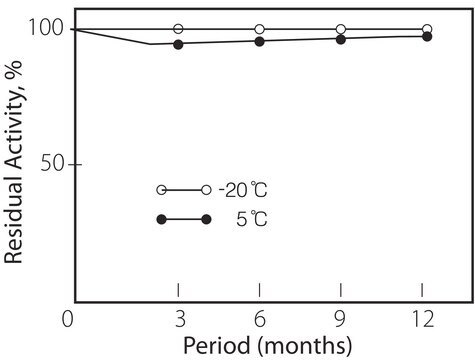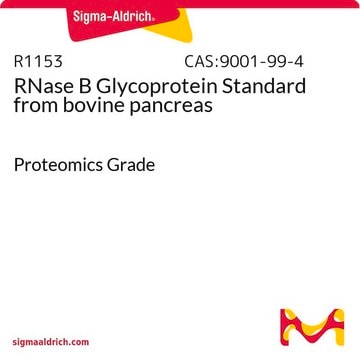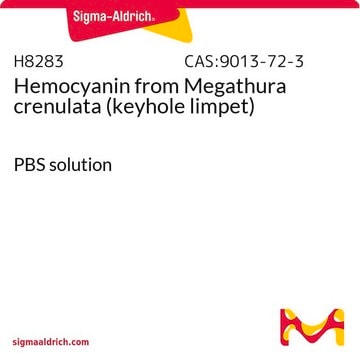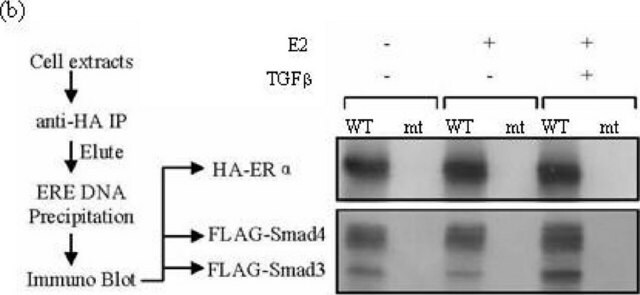I0408
Invertase Glycoprotein Standard
BioReagent, from Saccharomyces cerevisiae, for proteomics
Sinónimos:
Invertase from baker’s yeast (S. cerevisiae), β-D-Fructofuranosidase, β-D-Fructofuranoside fructohydrolase, Saccharase
About This Item
Productos recomendados
biological source
Saccharomyces cerevisiae
Quality Level
grade
for proteomics
product line
BioReagent
form
lyophilized powder
mol wt
60 kDa
concentration
≥0.5 mg/vial protein (E1%/280)
storage temp.
2-8°C
¿Está buscando productos similares? Visita Guía de comparación de productos
Application
- to generate N-linked glycan library
- as a negative control to study the binding of lectins to high mannose structures
- for sample pre-treatment in proteomic analyses to study drug-induced toxic epidermal necrolysis
Biochem/physiol Actions
Other Notes
signalword
Danger
hcodes
pcodes
Hazard Classifications
Resp. Sens. 1
Storage Class
10 - Combustible liquids
wgk_germany
WGK 3
ppe
Eyeshields, Gloves, type N95 (US)
Certificados de análisis (COA)
Busque Certificados de análisis (COA) introduciendo el número de lote del producto. Los números de lote se encuentran en la etiqueta del producto después de las palabras «Lot» o «Batch»
¿Ya tiene este producto?
Encuentre la documentación para los productos que ha comprado recientemente en la Biblioteca de documentos.
Los clientes también vieron
Nuestro equipo de científicos tiene experiencia en todas las áreas de investigación: Ciencias de la vida, Ciencia de los materiales, Síntesis química, Cromatografía, Analítica y muchas otras.
Póngase en contacto con el Servicio técnico
